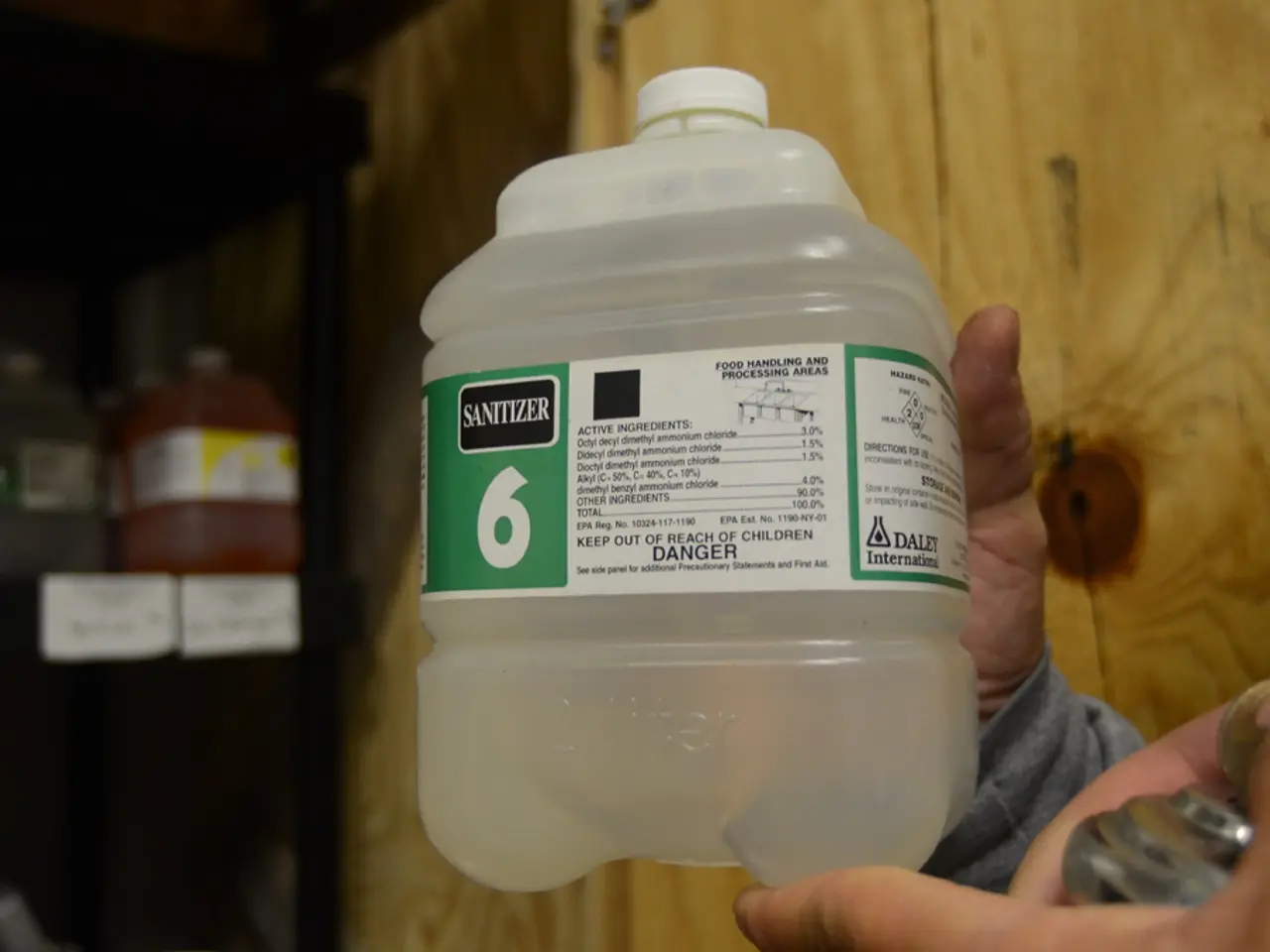Alcohol content in hand sanitizers: Effectiveness and more insights
In the ongoing battle against germs, hand sanitizers have become a crucial tool. But with various products available, it's essential to know what makes an effective hand sanitizer.
The Centers for Disease Control and Prevention (CDC) and the World Health Organization (WHO) recommend using a hand sanitizer containing a minimum of 60% ethyl alcohol or isopropyl alcohol. This minimum effective concentration ensures that the sanitizer can effectively eliminate a wide range of bacteria, viruses, fungi, and other microbes. Concentrations around 70-80% ethanol are often cited as optimal for microbial kill, as ethanol at these levels effectively denatures proteins and disrupts microbial membranes.
However, it's important to note that concentrations above 95% are less effective because they coagulate proteins too quickly to penetrate microbial cells properly.
The WHO specifically recommends using hand sanitizers containing a minimum of 60% alcohol for virus inactivation. Studies and product analyses support that concentrations near 70% ethanol provide enhanced bactericidal effects and are commonly used in healthcare and consumer products.
Ingesting hand sanitizer containing methanol can be fatal, so it's crucial to avoid products containing this substance. The Food and Drug Administration (FDA) only permits ethanol (ethyl alcohol) and isopropyl alcohol in hand sanitizers.
Hand sanitizers with less than 60% ethanol or non-ethanol-based sanitizers may not be as effective at killing a variety of bacteria, viruses, fungi, or microbes. Adding alcohol to a non-alcohol hand sanitizer is not advisable and could lead to skin irritation or burns.
To choose an effective hand sanitizer, look for an alcohol concentration of at least 60%, ethanol, ethyl alcohol, isopropanol, or 2-propanol as an ingredient, and additional ingredients like aloe vera or glycerin. The CDC does not advise people to make their own hand sanitizer at home.
The FDA does not recommend hand sanitizers containing benzalkonium chloride. To use a hand sanitizer effectively, read the instructions, apply the correct quantity, rub hands together, cover all surfaces, and let it dry.
It's worth noting that while ethanol-based hand sanitizers are effective at killing some viruses and bacteria, they are less effective for removing grease, dirt, pesticides, and other harmful chemicals. If people have come into contact with harmful chemicals, they should wash their hands thoroughly with soap and water.
Lastly, store hand sanitizers out of reach of young children, below 30 degrees Celsius, and away from heat sources or open flames. Exposure to methanol can cause nausea, vomiting, headache, blindness, seizures, and damage to the nervous system. Avoid putting alcohol-based hand sanitizer near the eyes or mouth, and never swallow it.
By following these guidelines, you can make an informed choice when selecting a hand sanitizer, ensuring that you're well-equipped to maintain good hygiene and protect yourself from harmful microbes.
- The Centers for Disease Control and Prevention (CDC) and the World Health Organization (WHO) recommend using a hand sanitizer containing a minimum of 60% ethyl alcohol or isopropyl alcohol for effective microbial kill.
- Ingesting hand sanitizer containing methanol can be fatal, so it's essential to avoid products containing this substance and stick to ethanol or isopropanol-based sanitizers.
- To choose an effective hand sanitizer, look for an alcohol concentration of at least 60%, ethanol, ethyl alcohol, isopropanol, or 2-propanol as an ingredient, and additional ingredients like aloe vera or glycerin.
- While ethanol-based hand sanitizers are effective at killing some viruses and bacteria, they are less effective for removing grease, dirt, pesticides, and other harmful chemicals. In such cases, it is advisable to wash hands thoroughly with soap and water.




